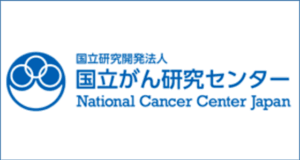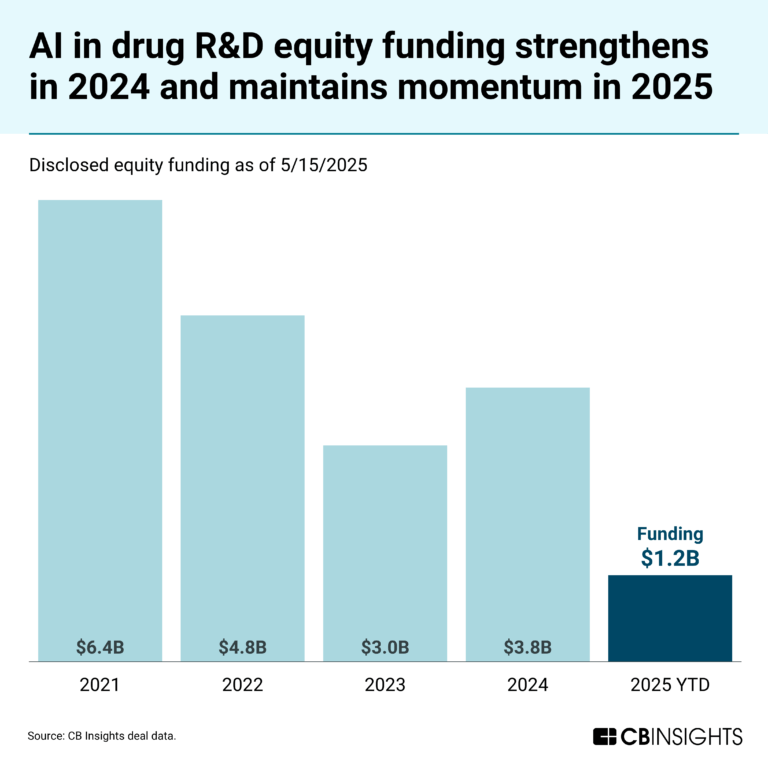
National Cancer Center Japan
Loading...
Loading...
Research containing National Cancer Center Japan
Get data-driven expert analysis from the CB Insights Intelligence Unit.
CB Insights Intelligence Analysts have mentioned National Cancer Center Japan in 1 CB Insights research brief, most recently on May 23, 2025.

May 23, 2025
The AI in drug R&D market mapNational Cancer Center Japan Patents
National Cancer Center Japan has filed 10 patents.
The 3 most popular patent topics include:
- transcription factors
- clusters of differentiation
- experimental cancer drugs

Application Date | Grant Date | Title | Related Topics | Status |
|---|---|---|---|---|
3/7/2017 | 4/25/2023 | Experimental cancer drugs, Monoclonal antibodies, Molecular biology, Clusters of differentiation, Cancer treatments | Grant |
Application Date | 3/7/2017 |
|---|---|
Grant Date | 4/25/2023 |
Title | |
Related Topics | Experimental cancer drugs, Monoclonal antibodies, Molecular biology, Clusters of differentiation, Cancer treatments |
Status | Grant |
Latest National Cancer Center Japan News
Aug 14, 2025
Institute of Advanced Industrial Science and Technology and the National Cancer Center Japan) Scientists said they have found and identified a gut bacterium that can enhance the effectiveness of immunotherapy against cancer. The researchers, primarily from the National Cancer Center Japan, said they ascertained the detailed mechanism by which the bacterium affects the immune environment around malignant tumors far from the intestines. They said they expect the bacterium will be applied in clinical research settings in the near future. The team's findings were published in the British scientific journal Nature on July 15. Anti-cancer agents known as immune checkpoint inhibitors, including renowned Opdivo, take advantage of killer T cells to attack tumors. These drugs enhance the immune cells' function while blocking carcinoma's ability to evade the human immune system. However, only about 20 percent of patients experience long-term therapeutic effects of the immune checkpoint inhibitors. Earlier studies had revealed that some of the more than 100 trillion bacteria in human intestines can influence how immune checkpoint inhibitors work. But it was unclear which of them were actually useful in the treatment process. With that in mind, the research team analyzed the excrement of 71 patients with lung and stomach cancer. The scientists then compared gut bacteria between people for whom immune checkpoint inhibitors are effective and those for whom they are not. The analysis showed that patients experiencing positive effects had more gut bacteria linked to the Ruminococcaceae family. The team then pinpointed the specific bacterium strain in the family capable of improving the effectiveness of immune checkpoint inhibitors. The strain was named YB328 and cultured successfully. As the next step, the scientists carried out an experiment on mice whose intestinal bacteria had been removed in advance. The combined use of an immune checkpoint inhibitor and YB328 reduced the carcinoma size through the test. The team also became aware that administering YB328 helped deliver a therapeutic impact even on mice transplanted with feces from patients who had not experienced positive effects from drug treatment. The researchers explored the way the therapeutic effect of YB328 in the gut reaches the immune system around cancer cells, despite their distance from the intestines. They found that YB328 activates dendritic cells in the gut that play a leading role in the immune response. This activation enables dendritic cells to travel all the way to cancerous and lymphatic tissues in distant organs, facilitating the function of killer T cells near tumors and thereby bringing about immune effects. According to the team, YB328 can be considered a safe bacterium, given that it has been confirmed in 20 percent of people worldwide regardless of race or region. “Administering YB328 may allow immune checkpoint inhibitors to manifest their therapeutic effects even among patients who could otherwise not benefit from them,” said Hiroyoshi Nishikawa, chief of the Division of Cancer Immunology at the National Cancer Center Research Institute. The team's findings can be found at (https://www.nature.com/articles/s41586-025-09249-8). (This article was written by Chisato Matsumoto and Ayaka Kibi.)
National Cancer Center Japan Frequently Asked Questions (FAQ)
Where is National Cancer Center Japan's headquarters?
National Cancer Center Japan's headquarters is located at 5-1-1- Tsukiji, Tokyo.
Who are National Cancer Center Japan's competitors?
Competitors of National Cancer Center Japan include The University of Tokyo Hospital.
Loading...
Compare National Cancer Center Japan to Competitors
Johns Hopkins All Children's Hospital is a pediatric health care provider focused on medical care, research, and education in children's health. The hospital provides various services, including specialized medical and surgical care, treatment for cancer and blood disorders, heart and brain care, and maternal, fetal, and neonatal health services. It serves the healthcare needs of children and their families through its hospital and outpatient care centers. It is based in St. Petersburg, Florida. Johns Hopkins All Children’s Hospital operates as a subsidiary of Johns Hopkins Medicine.
Kyushu University Hospital is a national university hospital that provides healthcare services for the Fukuoka City region.
Hokkaido University operates as a university with an emphasis on research across various fields, including natural sciences, social sciences, and humanities. The university offers undergraduate and graduate programs, along with research opportunities, and has campuses that are noted for their environment and education, and research philosophies like 'Frontier Spirit' and 'Global Perspectives'. It is based in Hokkaido, Japan.
Tohoku University is based in Sendai, Japan.
St. Luke's Hospital is a healthcare provider that offers services in cancer care, cardiovascular medicine, neurology and neurosurgery, orthopedics, and women's health services, along with primary care, urgent care, imaging, lab services, and therapy. St. Luke's serves the healthcare needs of the greater St. Louis area. It was founded in 1866 and is based in Saint Louis, Missouri.
Juntendo University is a private university. It provides undergraduate, graduate, and short-term programs in medicine, health and sports science, nursing, health science, liberal arts, and more. It was founded in 1838 and is based in Tokyo, Japan.
Loading...
